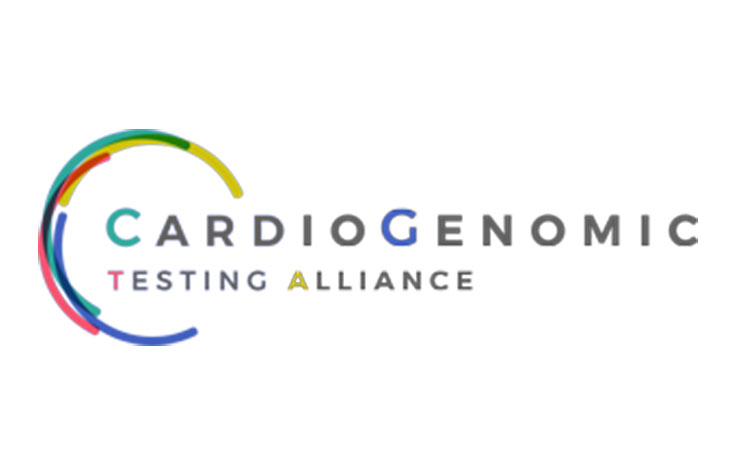Heart Disease Risk
Learning about your risk for heart disease
Genetic testing for cardiovascular disease awareness and health

Is heart disease genetic?
More than 40 different cardiovascular conditions with a direct genetic link have been identified. These include problems with your heart's rhythm, called arrhythmias; diseases of the heart muscle, called cardiomyopathies; thinning of the large heart vessel, called aortic aneurysms; and high cholesterol, called hypercholesterolemia.1
Fortunately, genetic testing is gaining wider recognition from professional medical societies in the clinical management of individuals and families affected by inherited conditions related to heart disease.2
Featured conditions
What genetic sequencing can do for your cardiovascular health
Long QT syndrome
Long QT syndrome (LQTS) is a life-threatening condition that can disrupt the normal beating rhythm of the heart and represents a leading cause of sudden death in the young. This condition is typically characterized by a prolongation of the QT interval on an electrocardiogram (ECG).
Role of genetic testing in diagnosis
- Confirm clinical diagnosis1
- Confirm subtype classification1
- Assist in subsequent family testing (cascade testing)1
Role of genetic testing in treatment
- There are some specific treatments your doctor may suggest based on your genetic testing results
Hypertrophic cardiomyopathy
Hypertrophic cardiomyopathy is a type of heart disease most often caused by abnormal genes that thicken the heart muscle. This typically affects the walls of the left heart chamber (left ventricle). As a result, the thickened walls of the heart are not able to pump blood effectively.
Role of genetic testing in diagnosis
- Confirm a clinical diagnosis2
- Confirm a diagnosis in post-mortem cases2
- Assist in subsequent family testing (cascade testing)2
Role of genetic testing in treatment
- There are some specific treatments your doctor may suggest based on your genetic testing results
Familial aortic aneurysm and dissection
This is a rare condition that weakens or enlarges the aorta, the large blood vessel that distributes blood from the heart to the body. As a result, this can lead to a sudden tear in the inner wall of the aorta that allows blood to flow between the aorta's inner and outer walls (also called a dissection).
Role of genetic testing in diagnosis
- Confirm clinical diagnosis3
- Confirm subtype classification3
- Assist in subsequent family testing (cascade testing)3
Role of genetic testing in treatment
- There are some specific treatments your doctor may suggest based on your genetic testing results
- Your genetic test results may also suggest further tests for you and your family members who may be at high risk3
Familial hypercholesterolemia
Familial hypercholesterolemia (FH) is an inherited defect in how the body recycles low-density lipoprotein cholesterol (LDL). This results in high levels of LDL cholesterol, which can lead to a higher risk of a heart attack.
Role of genetic testing in diagnosis
- Confirm clinical diagnosis3
- Assist in subsequent family testing (cascade testing)3
Role of genetic testing in treatment
- There are some specific treatments your doctor may suggest based on your genetic testing results
- Your genetic test results may help define your risk and the best time for specific treatments3
Get started today
How to get genetic testing
If you would like to learn more about your risk for heart disease, talk to your doctor or genetic counselor about genetic testing. The results of genetic testing can help your doctor with your diagnosis, management, and treatment. Your results may also help find family members who are also at risk.2
Your privacy
In the United States, the Genetic Information Nondiscrimination Act (GINA) of 2008 prevents health insurance companies and employers from taking actions based on genetic test results.
In the European Union, the EU Charter of Fundamental Rights, Chapter III, Article 21 prevents any actions based on genetic features.

Genomic testing in cardiology
Illumina is a founding member of the CardioGenomic Testing Alliance (CGTA), which is a group of companies and labs working together to raise awareness about the best uses of genetic testing for heart diseases.
Learn moreLearn more

Cardiovascular disease research
Stay on the cutting edge of cardiovascular disease genetic research. Explore various solutions and methods that can accelerate and deepen your research discoveries.

Cardiovascular genetics for providers
Read the benefits of cardiovascular disease genomics on the diagnosis, management, and treatment of patients. Get updated guidelines from leading professional medical societies.

Cardiovascular genomics overview
See the compelling case for genetic sequencing to improve our understanding of cardiovascular related diseases.
Expanding genomic access
Making genomics available to all
Making genomics available to all is critical in realizing its potential to save and improve lives. That’s why we are driving down the cost of sequencing, expanding access to advanced technology, and increasing the diversity of genomics data.
Unlocking the power of the genome for all communities
Read how Illumina is working with partners to expand genetic testing for everyone.
References
- Semsarian C, Ingles J, Ross SB, Dunwoodie SL, et al. Precision Medicine in Cardiovascular Disease: Genetics and Impact on Phenotypes: JACC Focus Seminar 1/5. J Am Coll Cardiol. 2021;77(20):2517-2530. doi:10.1016/j.jacc.2020.12.071
- Wilde AAM, Semsarian C, Márquez MF, et al. European Heart Rhythm Association (EHRA)/Heart Rhythm Society (HRS)/Asia Pacific Heart Rhythm Society (APHRS)/Latin American Heart Rhythm Society (LAHRS) Expert Consensus Statement on the state of genetic testing for cardiac diseases. J Arrhythm. 2022;38(4):491-553. Published 2022 May 31. doi:10.1002/joa3.12717
- Musunuru K, Hershberger RE, Day SM, et al. Genetic Testing for Inherited Cardiovascular Diseases: A Scientific Statement From the American Heart Association. Circ Genom Precis Med. 2020;13(4):e000067. doi:10.1161/HCG.0000000000000067